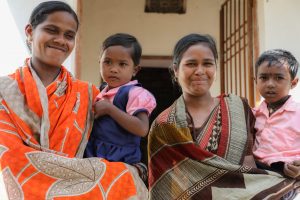Aparna John, Nicholas Nisbett, Inka Barnett, Rasmi Avula, Purnima Menon
Plos One | 2020
Open Access | cc-by-4.0
Globally, there remain significant knowledge and evidence gaps around how to support Community Health Worker (CHW) programmes to achieve high coverage and quality of interventions. India’s Integrated Child Development Services scheme employs the largest CHW cadre in the world—Anganwadi Workers (AWWs). However, factors influencing the performance of these workers remain under researched. Lessons from it have potential to impact on other large scale global CHW programmes. A qualitative study of AWWs in the Indian state of Bihar was conducted to identify key drivers of performance in 2015. In-depth interviews were conducted with 30 AWWs; data was analysed using both inductive and deductive thematic analysis. The study adapted and contextualised existing frameworks on CHW performance, finding that factors affecting performance occur at the individual, community, programme and organisational levels, including factors not previously identified in the literature. Individual factors include initial financial motives and family support; programme factors include beneficiaries’ and AWWs’ service preferences and work environment; community factors include caste dynamics and community and seasonal migration; and organisational factors include corruption. The initial motives of the worker (the need to retain a job for family financial needs) and community expectations (for product-oriented services) ensure continued efforts even when her motivation is low. The main constraints to performance remain factors outside of her control, including limited availability of programme resources and challenging relationships shaped by caste dynamics, seasonal migration, and corruption. Programme efforts to improve performance (such as incentives, working conditions and supportive management) need to consider these complex, inter-related multiple determinants of performance. Our findings, including new factors, contribute to the global literature on factors affecting the performance of CHWs and have wide application read more
COVID-19 induced lockdowns have had far reaching impacts on the rural sector, particularly on women farmers.
This paper examines whether the public transfer program PMGKY, announced immediately after the lockdown, benefited farmers in dealing with the COVID shock.
Public food transfer program provide a lifeline for the poor in both high- and low-income countries, and many countries stepped these up in response to COVID-19.


